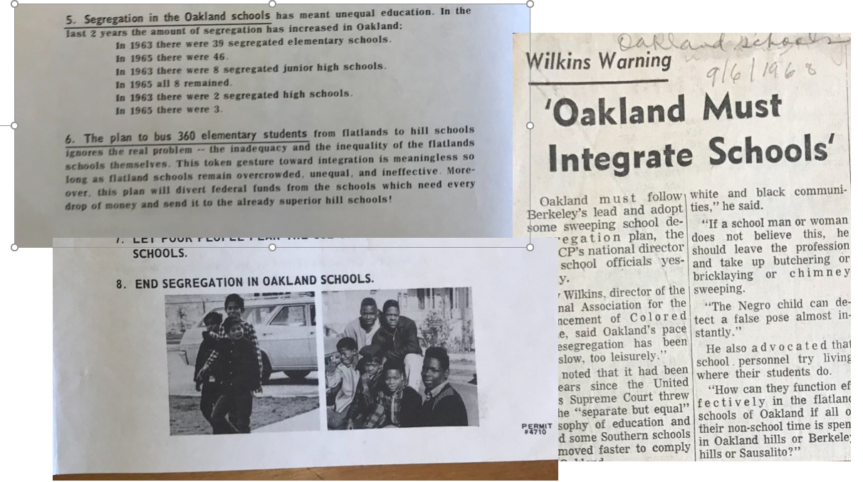In 1871 Isaac Flood petitioned the Oakland School Board to admit Black students, they won. Yet Oakland still has segregated, separate, and unequal schools. Our recent podcast “Desegregate Oakland Schools Now?” took on these questions and more. Please take a look.
It was a walkthrough of history, from Dr. Gary Yee and Dr. Brian Stanley as they described their experiences in OUSD and the changing demographics, and actually worsening segregation in the district. You can see the presentation is here.
But check out the numbers specifically on racial dissimilarity (how much the schools look like the overall district). At every level the schools have less racial balance than they did in the 1960’s. 4 of 6 high schools in the 60’s had a racial balance that was close to the overall student population, now it is 1 out of 16. So, if we believe racial balance is a good, or at least better than the hyper segregation we are experiencing then we have some serious work to do.

These are important discussions, particularly against the backdrop of the existing and proposed changes in the enrollment system, and calls for some to go back to neighborhood assignment. As Dr. Yee stated, “any system where there is residential segregation and neighborhood preference will lead to segregated schools.” And let’s be clear around who that benefits and who it hurts. The neighborhoods with the highest performing schools (Hills and Northwest) are mostly White and higher income, they have the highest rates of staying in neighborhoods (not surprisingly).
So, who is choosing out of neighborhood schools?
Black and Latinx families have the highest rates, over 70% of them do not go to their zoned school. So how can an advocate of equity push for limiting the choices of our most underserved parents? Not sure.

There is some great content in the podcast, so please check it out. OUSD and the charters have important policy decisions around the enrollment rules, and who gets to go to what schools. And this has real impact for families (you can see some slides on impact in the presentation). Ultimately it is a matter of values, not those we profess publicly, but those we live. And even if we did not create this segregated, separate, and unequal system ourselves, we are witnesses to it, and if we do nothing in the face of this injustice, we are complicit in it.
The choice is ours, and what we decide says a lot about our actual values. Please join us in the quest for better and fairer answers, we can do this, it is entirely a matter of will and values.
Join us next week for our second podcast in the series.

